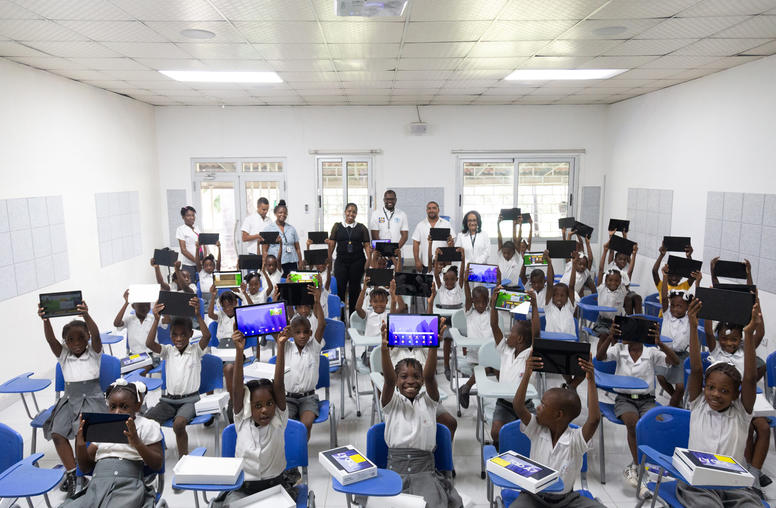The MPICE Metrics Framework and the Haiti Stabilization Initiative
USIP is conducting a workshop to discuss lessons from use of the MPICE Metrics Framework to assess the Haiti Stabilization Initiative (HSI) and to draw more general lessons for the practice of measurement and evaluation.
On December 6 USIP will conduct a workshop to discuss lessons from use of the MPICE Metrics Framework to assess the Haiti Stabilization Initiative (HSI) and to draw more general lessons for the practice of measurement and evaluation.
HSI was inaugurated in 2007 with the goal of promoting security, local government capacity, and economic opportunity in Cité Soleil, the volatile gang-infested Port-au-Prince neighborhood that had served as a primary engine of recurring instability and violence in Haiti.
Directed by David Becker, U.S. embassy stabilization coordinator, and supported by the State Department’s Coordinator for Reconstruction and Stabilization, this peacebuilding initiative used the Measuring Progress in Conflict Environments (MPICE) Framework to measure and evaluate its accomplishments. Rob Grossman-Vermaas, of Logos Technologies, oversaw this effort, conducting three assessments between 2007 and 2010 which entailed the development of innovative data collection methodologies, local partnering arrangements, participatory techniques and analysis tools.
Explore Further
- Measuring Progress in Conflict Environments (MPICE)
- Learn more about USIP's work in Haiti
- USIP Haiti Working Group
9:30am - 9:40am - Overview of the MPICE Framework
- Michael Dziedzic
Senior Program Officer
Center for Post-Conflict Peace and Stability Operations
U.S. Institute of Peace
9:40am - 10:00am - Operationalization of the MPICE Framework
- Rob Grossman-Vermaas
Lead, Social Sciences (S2) Group,
Logos Technologies, Inc
10:00am - 10:30am - Application of MPICE in the Haiti Stabilization Initiative (HSI)
- David Becker,
Stabilization Coordinator,
Haiti Stabilization Initiative (2007) - Rob Grossman-Vermaas
Lead, Social Sciences (S2) Group,
Logos Technologies, Inc
Topics:
- The Haiti Stabilization Initiative (HSI)
- Applying MPICE to the requirements of the Haiti Stabilization Initiative
- Challenges in collecting, analyzing, and visualizing the data
- Relevance for the decision making process
10:30am - 11:15am - Lessons learned for MPICE and for Measurement and Evaluation
- David Becker and Rob Grossman-Vermaas
Topics:
- Tailoring MPICE to the local context
- Utility and impact of the MPICE Framework
11:15am - 11:30am - Discussant’s Comments
- Michael Cooper,
Office of the Coordinator for Reconstruction and Stabilization
U.S. Department of State
11:30am - 12:30am - Q & A Session


